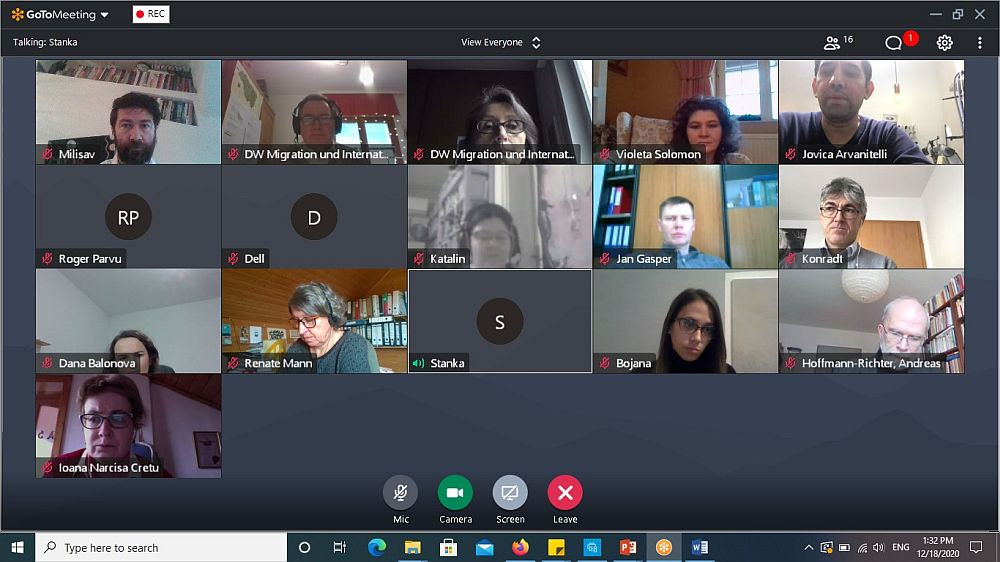Commencement of the project "Together and for the Roma in the Danube Region"

26. Dec 2020.
The Ecumenical Humanitarian Organization, in cooperation with Diakonie Württemberg and partners from Slovakia and Romania, has launched a cooperation project entitled "With and for Roma in the Danube Region" which aims to exchange experiences, knowledge and examples of good practice in working with the Roma community in the Danube countries. region. The first preparatory meeting of the project team was held online, where we determined the project activities for the next 15 months and how long the project will last.
In addition to project partners from Romania, Slovakia and Serbia, representatives of the state ministry and the Sinti and Roma regional association from Würtemberg also took part in the event.
Dr. Birgit Dinzinger, Head of the Department for Migration and International Diakonia at the Diakonie Würtemberg , said: "With this project, we want to contribute to the Roma inclusion in our country and in the European Union."
The core of the project consists of three phases:
1. Phase A: Capacity Building in Roma Villages to Prevent Domestic Violence in the Sibiu Region, Romania
2. Phase B: Educational measures to combat poverty in the Roma settlement of Rankovce in Slovakia
3. Phase C: Counseling and information regarding Roma mobility in Stuttgart as part of field social work. and the promotion of easy migration
All three phases will be carried out with the professional support of EHO and the project team in order to exchange information, practices and experiences in social work with the Roma population and their participation.
Local civil society organizations will be more closely involved in project activities and local actors will move towards more effective advocacy for decision-makers responsible for social inclusion. The focus of the cross-border project is the transfer of knowledge and exchange of experiences on successful projects and practices in the work of the Roma community and other marginalized groups.
The project is a continuation of a long-term partnership between the Evangelical Church of Württemberg and the Ecumenical Humanitarian Organization. A special focus of cooperation in recent years has been the implementation of various projects for returnees under the Readmission Agreement from Germany, but also projects such as assistance to refugees, programs for street children, care for people with disabilities and the elderly, and health care. Through all projects, EHO strives to achieve the main goals of the fight against poverty and the promotion of human rights, and thus to contribute to the building of a sustainable civil society in Serbia.
By including Diakonia in Slovakia, the Evangelical Academy in Transylvania and the Women's Initiative in Sibiu, Diakonie Württemberg and EHO are laying another cornerstone in cooperation with partners from Eastern Europe. This cooperation should be extended to three more countries in the Danube region during the duration of this project.
The project was made possible by the financial support of the state ministry within the EU Strategy for the Danube Region (EUSDR). This macro-regional strategy aims to strengthen cooperation between the Danube countries and includes nine EU member states: Bulgaria, Germany, Croatia, Austria, the Czech Republic, Hungary, Romania, Slovakia and Slovenia. Outside the EU, it includes Serbia, Bosnia and Herzegovina, Montenegro, the Republic of Moldova and Ukraine.